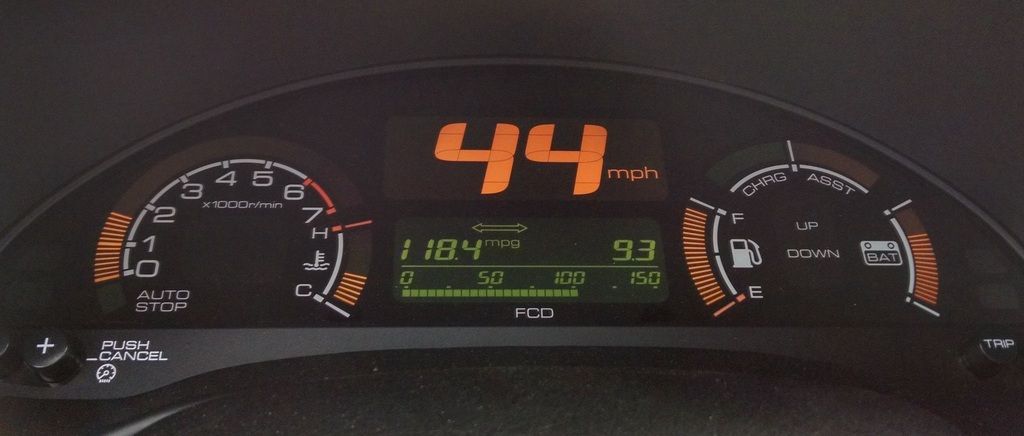Cool setup.
Staying off the throttle for long periods, with short bursts of high-RPM acceleration in 3rd, may not be the best way to maximize MPG. Here's my reasoning:
In order to travel at a given speed over a certain distance, you need to expend a certain amount of energy, and there's no way of getting around this. Reducing your speed reduces drag exponentially, for a linear increase in travel time, which is why slowing down (all else being equal) will improve your fuel economy.
The other factor you control is how you produce that power. Ideally, you'll want to produce the power needed for your chosen speed and distance as efficiently as possible, which is achieved at peak BSFC. Here's the chart for my engine:

Most engines will have peak economy at slightly higher RPM, but notice that as you rev it up, you get less out of your gasoline due to exponentially increasing friction inside the engine. For this engine, around 80% load at 2000 +/- 300RPM (ish) delivers the absolute best conversion of gasoline into forward motion. So, when driving, I'd want to shift to stay within those RPM boundaries. Unfortunately, 5th gear @ 80% load will inevitably bring me up past my desired cruising speed, so in real-world driving situations I would want to pulse at 80% load in whatever gear keeps me between 1700 and 2300RPM, and then shut the engine off until I slow back down to where when I drop it in gear, I'm at 1700RPM again.
I really like slow, rolling hills, because I can pulse up one side at 80% load, shut the engine off at the top, roll down the other side with zero parasitic loss from the engine spinning, and then begin my pulse again at the bottom.
Lean burn is wonderful because it allows you to produce less power at the same load/RPM, often allowing you to continuously run at 80%ish load without accelerating, or at least, extending the pulse so you don't have to repeat pulse and glide cycles as often.
Using this technique, I've had as much as 50mpg (city) out of a car rated for 26/30, and nearly 120mpg out of a car rated for 49/61.


It's difficult to average that over a tank when sharing that car with one's spouse, unfortunately.
